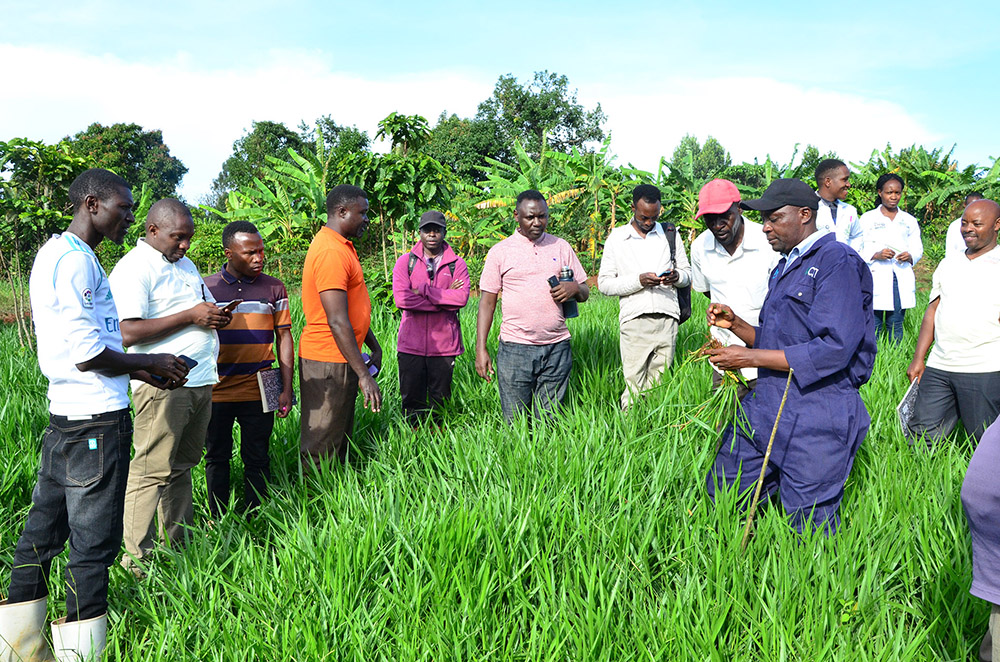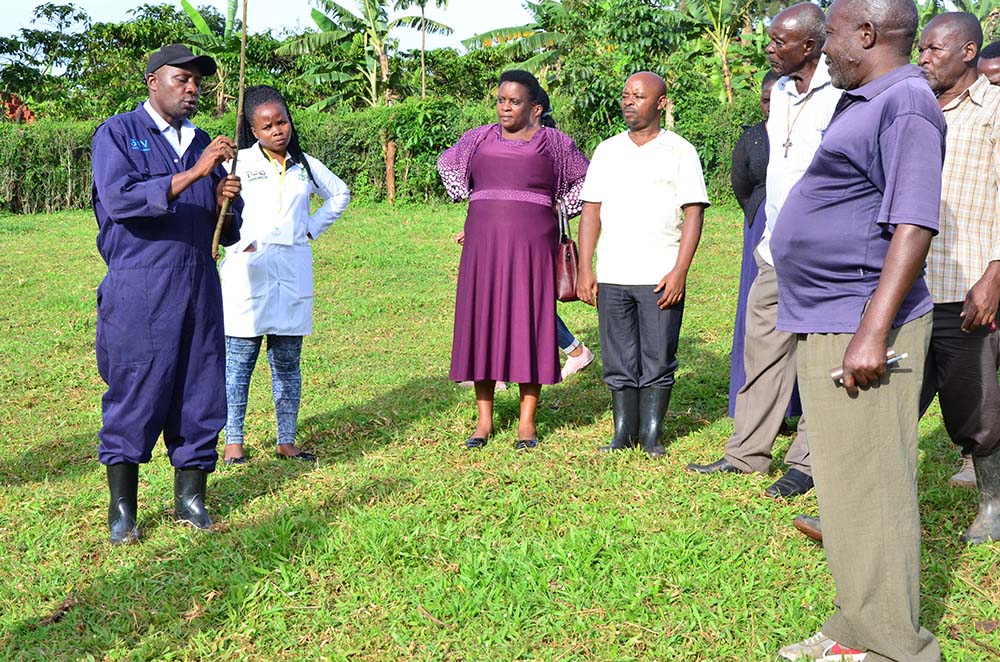With climate change continuing to impact agriculture activities, dairy farmers in Ibanda have been encouraged to embrace the growing improved pastures to feed the animals, ensuring sustainable milk production and incomes.
Innocent Arinaitwe Kasiisi, a dairy nutrition expert from SNV Mbarara, said improved pasture varieties such as cayman, brachiaria, massai and chloris gayana contain many nutrients compared to local ones and hence boost milk production.
A cow that feeds on local pastures will lack some of the nutrients required to give you more milk compared to the one that feeds on hybrid grasses and legumes, he added.
He noted that besides containing most the required nutrients, hybrid pasture varieties are drought-resistant.
Kasiisi emphasised the importance of proper feeding, noting that it ensures the cows are in good health, besides boosting milk production. It also helps to stop abnormalities, and challenges like still-births and a cow’s failure to conceive, he added.
The dairy nutritionist was speaking during a training workshop on animal feeding and management of pastures at Bukuto II in Bufunda Division, Ibanda municipality.
He advised the farmers to embrace good practices in pasture production, like weeding and application of manure, to ensure proper growth of the pastures. The grasses should also be harvested at the right time and fed to animals or for making hay.

For farmers practising free range grazing, paddocking was encouraged to avoid trampling of pastures by the animals.
He also said animals should have unrestricted access to water drinking points. He said the common practice of taking the cows to drink at given times of day especially in the afternoons and evenings affects milk production.
Participants speak out
Charles Kamwine Muhumuza, the host farmer, testified that using improved pastures has boosted milk production.
He explained that previously, his two cows were giving him almost 10 litres, but when he started feeding on improved pastures like masai, napier and cayman, milk output more than doubled to 21 litres.
“I have started supplying Kagoro Dairies in Ibanda town and earn about sh600,000 monthly. These things are real… I have experimented feeding the cows with improved pasture as I learnt during a previous training like this one and the results are there for everyone to see,” Kamwine, said, emphasising that dairy farming was a good enterprise, one also gets manure for the crops besides milk.
Molly Kamugisha, another farmer, said she gets over 25 litres of milk daily, raking in sh750,000 for the family each month, thanks to feeding the cows on improved pasture varieties.
Joseph Kiiza, one of the participants, noted that farmers fail to feed the animals properly because they lack knowledge. I will be doing things differently going forward, he added.
Form coops
Simon Muhumuza, the general secretary of Ibanda District Farmers’ Association (IBADIFA), urged the dairy farmers to form cooperatives to lobby for them and find a better market for their milk.
Besides, the Government and organisations find it easy to support organised groups, but not individuals. When you are in cooperatives, IBADIFA can easily mobilise and lobby for you, including training opportunities like this one.
He said knowledge acquisition was important to improve the dairy sector in the district.

Challenges
Meanwhile, the participants cited lack of planting materials as well as the cost involved as some of the challenges. Others were the high cost of acaricides, chemicals for pests and disease control and fertilisers.
Lack of a steady market for milk and the low prices also discourage many from investing more in the sector.





